Premium Only Content
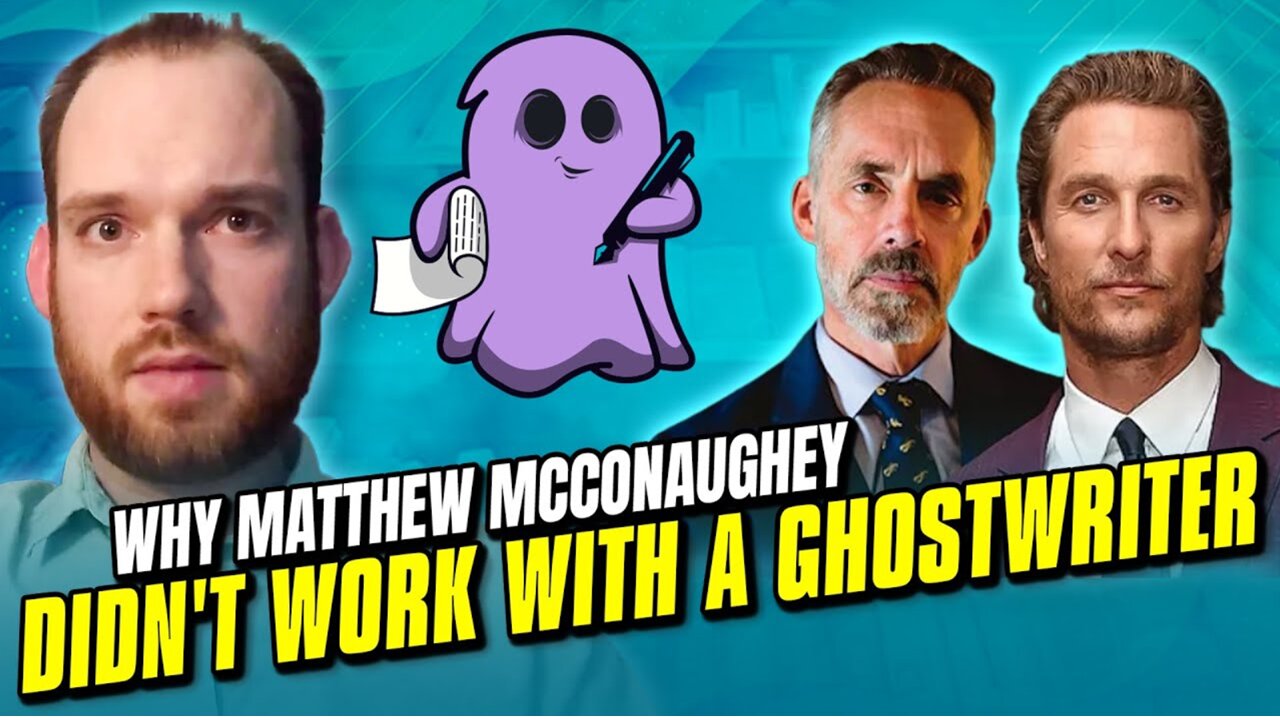
Why Matthew McConaughey Didn't Work with a Celebrity Ghostwriter: Writing Coach Joshua Lisec Reveals
👉 Write a useful book that converts readers into high-paying clients. Free training shows you how: https://lisecghostwriting.com/golden/ 📖
“Why Matthew McConaughey Didn't Work with a Celebrity Ghostwriter: Writing Coach Joshua Lisec Reveals” is a deep dive into the creative and strategic decisions behind one of the most talked-about celebrity memoirs of recent years — Greenlights by Matthew McConaughey. In this episode, celebrity ghostwriter and writing coach Joshua Lisec explores why McConaughey chose to write his book himself after initially hiring a ghostwriter, and what that decision reveals about how authentic, persuasive writing really works.
At the center of the discussion is McConaughey’s own story about starting Greenlights with a ghostwriter — a process that didn’t go as planned. The early version of the book, as Lisec points out, sounded too much like every other motivational book you’ve already seen on a friend’s shelf or the back of a toilet seat. It had the right structure, the right tone, even a “feel-good” message — but it didn’t sound like Matthew McConaughey. That was the breaking point.
Lisec, who has ghostwritten dozens of books for entrepreneurs, thought leaders, and public figures, uses this example to explain why so many celebrity ghostwriting projects fall apart. He notes that while many ghostwriters are technically skilled, they often reproduce formulas that have already been written — especially in the self-help or personal development category. The result? Books that blend together, offering familiar advice without a unique promise of value.
Through the lens of McConaughey’s experience, Lisec introduces the Jobs to Be Done theory — a concept from business strategy that he applies to writing and publishing. The idea is simple: readers “hire” a book to do a specific job for them, whether that job is functional (to learn something), emotional (to feel a certain way), or financial (to improve their situation). According to Lisec, this framework explains both why Greenlights succeeded and why many ghostwritten books don’t.
Throughout “Why Matthew McConaughey Didn't Work with a Celebrity Ghostwriter: Writing Coach Joshua Lisec Reveals,” Lisec breaks down how Greenlights — though written by McConaughey himself — perfectly fits the principle of a strong “job to be done.” It wasn’t a recycled motivational guide; it was a memoir infused with the actor’s personality, voice, and rhythm. It gave readers something no one else could give: a sense of what it feels like to be Matthew McConaughey.
Lisec contrasts this with what he calls the “toilet-bowl motivational book” — the kind of title ghostwriters often pitch when they don’t understand the true emotional value a reader is seeking. He explains that a celebrity book shouldn’t feel interchangeable with a generic self-help title by Tony Robbins, Brené Brown, or Jen Sincero. Instead, it should make the reader think, “I’ve never read this before.”
In this episode, Lisec also connects McConaughey’s decision with his own experience as a celebrity ghostwriter. He shares that many of his clients come to him after working with multiple ghostwriters who couldn’t capture their authentic voice. As a writing coach, Lisec emphasizes that the difference between a forgettable book and a best-selling one lies in discovering a unique promise of value — the one thing only that author can deliver.
The video goes beyond the McConaughey story to illustrate what that looks like in practice. Lisec recounts how one of his clients, a management consultant, came to him with a generic concept for a business book. By applying the same Jobs to Be Done principle, Lisec helped transform that concept into The 60-Minute Startup — a title with a clear promise of value that resonated with busy entrepreneurs. The book went on to win awards and rank high on Amazon, proving that the right message, framed around the reader’s desired “job,” leads to success.
In connecting these examples, Lisec offers insight into why McConaughey’s book worked precisely because it didn’t sound like every other celebrity memoir. By refusing to settle for a formulaic ghostwriter approach, McConaughey created something emotionally authentic — something that reflected his life’s “greenlights.” Lisec argues that this authenticity is what readers crave most and what every writer, ghostwriter, and writing coach should strive to achieve.
The episode also provides lessons for aspiring authors and professional ghostwriters alike. For authors, it’s a cautionary tale about choosing the right collaborator — one who understands how to translate their experiences into an emotionally resonant story rather than a recycled template. For ghostwriters, it’s a call to level up: to stop mimicking what’s already been done and instead help clients articulate a message that feels original, urgent, and true.
Lisec explains that persuasive writing — whether for a memoir, a self-help book, or a brand story — depends on offering something that no one else can. That’s the core of persuasive writing, and it’s why McConaughey’s Greenlights stands out in a sea of celebrity books. Instead of borrowing the tone of another author, he leaned into his own eccentricity, humor, and vulnerability. That, Lisec says, is the ultimate “job” readers hire the book to do: to connect with the real person behind the words.
Throughout the episode, Lisec draws parallels between McConaughey’s creative journey and the many clients who initially struggled to find the right fit with a ghostwriter. He emphasizes that being a writing coach isn’t just about editing sentences — it’s about helping authors find their authentic purpose and align their ideas with what readers truly want. The lesson from McConaughey’s decision is clear: when your voice is the brand, authenticity isn’t optional — it’s the entire product.
The episode, “Why Matthew McConaughey Didn't Work with a Celebrity Ghostwriter: Writing Coach Joshua Lisec Reveals,” also touches on McConaughey’s viral conversation with Jordan Peterson. Lisec references the Jordan Peterson Podcast where McConaughey discussed the origins of Greenlights, using it as a springboard to talk about the creative tension between self-expression and commercial appeal. The McConaughey Peterson interview becomes a case study in what happens when an author rejects generic advice and trusts their own storytelling instincts.
By weaving together the themes of authorship, authenticity, and the psychology of persuasion, Lisec offers a fresh perspective not just on Greenlights, but on the craft of writing itself. For anyone interested in how books like McConaughey’s Greenlights are made — and why some celebrity books fall flat — this episode delivers a behind-the-scenes look that’s both revealing and practical.
Whether you’re a fan of Matthew McConaughey, a professional ghostwriter, or someone studying persuasive writing, the insights from this episode will change how you think about storytelling. Lisec shows that writing a meaningful book isn’t about mimicking what’s already successful — it’s about creating something readers can’t get anywhere else.
From the Jordan Peterson podcast to the lessons of the Jobs to Be Done theory, from Greenlights to the importance of voice, “Why Matthew McConaughey Didn't Work with a Celebrity Ghostwriter: Writing Coach Joshua Lisec Reveals” is both a reflection on creativity and a roadmap for anyone who wants to write with conviction.
It’s a must-watch for those who believe that great writing — like great living — starts when you stop trying to copy others and start saying what only you can say.
-
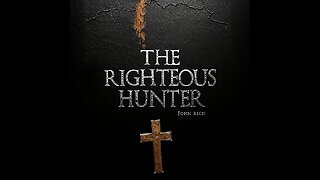 5:31
5:31
John Rich Official
13 days agoThe Righteous Hunter by John Rich
16.9K8 -
 59:51
59:51
Rebel News
2 hours agoEby threatens to block pipeline, Guilbeault out of cabinet, Land disputes continue | Rebel Roundup
15.1K2 -
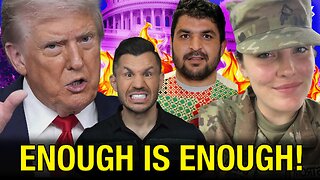 1:45:59
1:45:59
Robert Gouveia
4 hours agoAmerican Soldier DEAD! Trump Furious! Afghan 'Vetted by CIA'! Third World FREEZE!
41.7K32 -
 48:48
48:48
The Culture War with Tim Pool
4 hours agoThe West Is COLLAPSING Under Mass Migration | The Culture War's Across The Pond
28.9K55 -
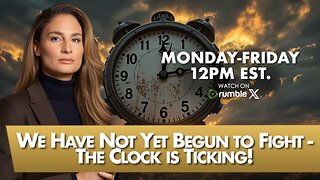 1:42:33
1:42:33
The Mel K Show
3 hours agoMORNINGS WITH MEL K - We Have Not Yet Begun to Fight - The Clock is Ticking! 11-28-25
24.8K14 -
 1:25:54
1:25:54
Film Threat
15 hours agoHOLLYWOOD FOR SALE! BLACK FRIDAY BLOW OUT! | Film Threat Livecast
14.8K2 -

The Shannon Joy Show
4 hours agoSJ Show Nov 28 - The SJ Friday Matinee Watch Party With Commentary Featuring The Big Short!
14.9K -
 35:39
35:39
Grant Stinchfield
6 hours ago $2.23 earnedThe Medical Deep State Exposed — And McCullough Has the Receipts!
12.4K -
 59:15
59:15
Trumpet Daily
3 hours ago $2.94 earnedTrumpet Daily LIVE | Nov. 28, 2025
12.6K3 -
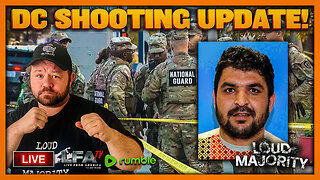 LIVE
LIVE
LFA TV
17 hours agoLIVE & BREAKING NEWS! | FRIDAY 11/28/25
2,922 watching